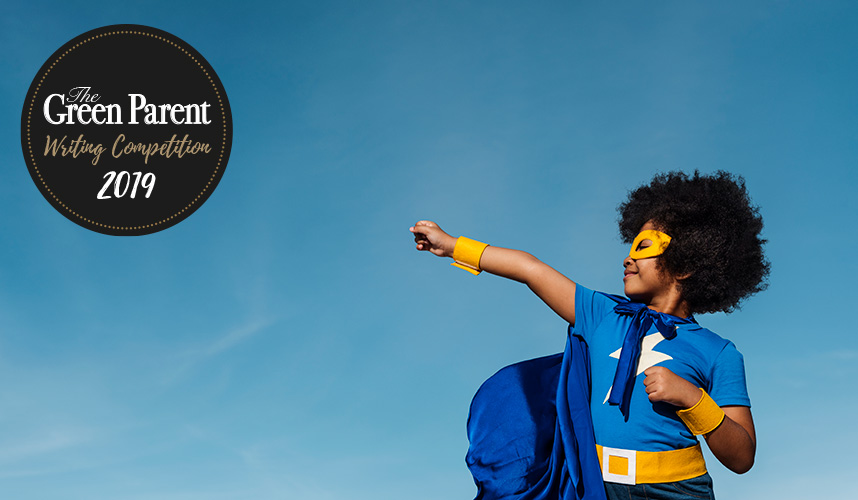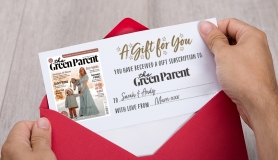Do you want to feel strong and resourced as a parent, to support your kids as they prepare for a future in an increasingly uncertain world? As news headlines of global catastrophe become the norm, with climate emergency, failing democracies, and diminishing ecosystems becoming the daily reality, there is a real sense of urgency to preparing our kids for a future that actually exists.
Our children will inherit this world for better or for worse, and need to be well equipped. They need practical skills and physical tools to survive, but almost more importantly, emotional resilience to withstand the onslaught of difficulties that they will be coping with during their lives.
In the midst of the minutiae of mundane daily parenting struggles such as what to cook for dinner, and how to magically conjure a clean PE t shirt out of thin air on a Monday morning; the thought of tackling the bigger concerns and wider picture can seem really overwhelming.
What can you do as a busy and probably stressed out mum or dad to help your child face his or her future standing firmly on two feet with courage, compassion and capability?
How do you support them to become not only capable, but also emotionally equipped to not crumple into a heap of inaction when faced with our struggling world?
Enable capability.
As parents, we are hardwired to care for our kids. As infants they are completely helpless, and need take care of even their very basic needs, but as they start to grow, we can allow them to take an increasing amount of responsibility for them selves and their immediate environment. It’s all too easy to think that it’s our job to do everything for them, or to assume that they aren’t capable but we are actually depriving them of skill learning and growth when we step in to help them too much. We can be in danger of infantilizing them and stunting their belief in themselves to do or change anything when they are older
In my 21 years of parenting five children, I have noticed that they all glow with pride when given responsibility to complete a task, or a challenge without hovering adult intervention or help. It could be chopping the bananas to help make a smoothie as a toddler; decorating their bedroom, or making a den in the garden; but a child who is allowed to work and play without interference will be a content and empowered one.
‘But I can’t even get my kid to help wash up,’ is a common complaint. Yes, my kids can also suffer from a similar affliction, but the key is to never dissuade them when they are tiny, when they ask to help or when they try to complete a task. Even though they may seem more of a hindrance than a help aged 18 months, you will not only be doing them a service by allowing them to acquire valuable skills alongside you; but you too will reap the rewards as they grow older and more capable.
Recently, my just turned six year old son Finch was playing by the hearth, pushing his toy cars through the ash, which he’d dragged out of the wood burner. He loves making tracks and hills from the ash, which is lovely, creative play, but it can get really messy! I couldn’t help but sigh, as I passed by, and say,
‘I really must clear that wood burner out, we’ll be lighting a fire in the evenings soon!’
Finch looked up excitedly when he heard me and said,
‘Can I clean it out Mum?’
My first thought was,
‘Oh no, more mess,’ but he was keen, so I fetched a dustpan and a bucket, and gave him basic instructions. Then, crucially, I held back from offering further advice or hovering nearby. A few minutes later a full bucket of ash appeared, then I heard the roar of the hoover, which I’d placed strategically nearby. The result? A very clean wood burner, and a very proud six year old.
In that small moment Finch made a significant contribution to the running of the house. He carried out a task that needed doing that I didn’t have time to do. He gained a new skill and took great satisfaction from carrying out the job, which was completely within his capability. Although he is only six he can do so much.
He also loves washing the floor, does the dishes, makes flapjack and stacks firewood and his older siblings take on more age appropriate tasks such as mowing the lawn, childcare and cooking meals.
So how does getting your kid to clean a wood burner or make a meal, resource them to deal with environmental and social upheaval?
When your child has been allowed to be self reliant, to take risks and responsibility, and to feel like a valuable member of the household; he or she will take that feeling of capability and resourcefulness into adulthood. It’s as simple as that.
Be the change you wish to see
If we want our children to behave in a capable and responsible manner, then guess what? We have to too!!
Children are like sponges, they readily absorb what we do rather than what we say. So if we make our own herbal cough syrup every winter for example, or mend our worn out clothes instead of rushing to replace them, this will become normal for them, and that level of proactive behaviour will become their baseline.
And if we make sustainable lifestyle choices such as radically reducing or eliminating flying and driving, eating an increasingly plant based diet, and being extremely conscious about our buying habits; we can model for our kids how our daily actions and decisions can actually make an impact on the future of the planet.
When I became a parent I decided that I wanted to live as naturally as possible with my kids and make a real effort to make, do and mend, as part of my daily life. For example I make most of my kid’s medicine at home from plants I grow and gather from the fields and hedges.
A few years ago when a friend was babysitting the kids one evening, my youngest son got earache. The babysitter panicked a bit, but was amazed to see my then 11 year old daughter calmly gather St John’s Wort oil, a dropper, spoon and candle and administer warm herbal oil to her brothers ears before tucking him up with a herbal tea. There’s nothing more special or gifted about my daughter than any other child, she’s just watched me go through the same procedure many times with her and her siblings when they get ill.
Unfortunately, we are not encouraged in our society to be self reliant and empowered. Rather, we are coerced and manipulated into handing over our money and authority to an expert, or more often a brand or product. It’s easier to buy food, medicine, clothes, soap, or cosmetics and to consult a professional than to make our own remedies and meals and do our own research. Easier, but not more empowering.
Children and young adults are particularly susceptible this sort of persuasion, via advertising and social media, and it takes a good solid foundation of skills and self -empowerment to have the strength to resist the lures of consumerism. Even just growing a few vegetables in your garden or window box can be something real and tangible, that kids can naturally get involved with. Learning how to grow food is exciting, empowering and an amazing skill to take into adulthood.
We really have no idea what our lives will be like in thirty years time, and they could be very different from how they are today. As kids get older, they become aware of just how much their actions can affect their environment, and you can discuss your lifestyle choices and encourage family discussions about the issues. I’m not in favour of overwhelming very young children with images and information about environmental doom, and even with older children the images and concepts can be shocking and terrifying. By keeping the emphasis on positive action they can take, rather than using scare tactics, we can support our young people to feel emotionally strong and resourced rather than a panicked and anxious.
Working together
If anything is becoming obvious with our current global situation, it’s that the time for the lone wolf is definitely over. Grass roots movements, community action groups, and small clusters of neighbours, friends and families can come together with intention to create amazing results which would be impossible alone.
Working with others and helping others are how humans are wired to behave and although recent decades have belied this truth, we are slowly making our way back to our roots. It is so empowering for kids to see just how much difference can be made by simply forming or joining a group with a shared intention of positive action.
You don’t have to be a protestor or a leader of a big campaign to work in community, you could simply initiate a neighbourhood group to visit the local elderly with your kids; get involved with a community garden project, or volunteer at a local homeless charity. It’s all about realising that we don’t have to do it all alone.
Current world problems and issues can assume epic proportions for both our kids and ourselves, and mental health concerns are becoming more and more widespread. Connections and friendships are formed when working in community , and a sense of well being and satisfaction from making something or someone a little better or a little happier.
When I organised a trip to a refugee camp in Dunkirk, I gathered with a group of friends to collect hundreds of pairs of wool socks to take to the camp residents. My younger kids were part of the group sorting and labelling socks and raising money by selling books and cakes. They felt so pleased and proud to have made such a difference to hundreds of cold feet, and my eldest son went out himself a year later, aged 18, and spent two weeks over Christmas serving food to refugees in Calais. He called me from France and said that he felt the most alive he’d ever been in his life. Helping others, working in community can actually be the best therapy in the world.
Finally, ensure your kids care.
This is possibly the most important point of all. If your child doesn’t know what a bluebell or a Goldfinch is, she or he is unlikely to be much concerned if they become extinct. On the other hand if you can foster a love of the natural world, and in particular places in your immediate locality, you will have a child who acts to protect it because she genuinely cares.
I find that true appreciation and deep connection of nature comes from not only visiting it or observing it, but from interacting with it. This could be through den building, foraging for food or medicine, weaving rushes, collecting natural dye materials, climbing trees, playing with mud, or making ‘homes’ for wild life. I can’t tell you how many ‘snail gardens’ have been made over the 21 years I’ve been raising kids!!
My youngest spends hours observing bugs, my eldest daughter collected wildflowers and at five, knew what Fumitory and Black Medick look like. Each of my kids has had their own personal connections with wildlife that remain very special to them. They would fight to protect what they love.
And what we are trying to protect, our great beautiful Mother Earth, in turn feeds us and heals us. Spending long immersive periods of time in the great outdoors is such a gift for your child. Mental health improves, stress and anxiety reduces, physical wellbeing is positively affected, and the stronger the connection, the more intense the therapeutic affect. It’s an upward spiral of mutual care and protection.
You may have noticed that throughout this article I have placed more of an emphasis on what you can do rather than what you should get your kid to do. As parents, we can focus so intently on providing our kids with activities, that we can forget that it is actually more natural for them to be observing us as we live our lives fully, consciously, altruistically and with integrity.
By being the change you wish to see in the world , you become a fantastic source of inspiration for your family.
Be a guiding light. Live well.
Henrietta is a Devon based writer, artist and mother of five children (one existing now beyond the clouds). She is currently in training to be a Death Doula and has a pastoral role in the local Hospice. In spare moments she enjoys foraging for food and medicine in Devon hedges. https://www.instagram.com/angelwingshen/







